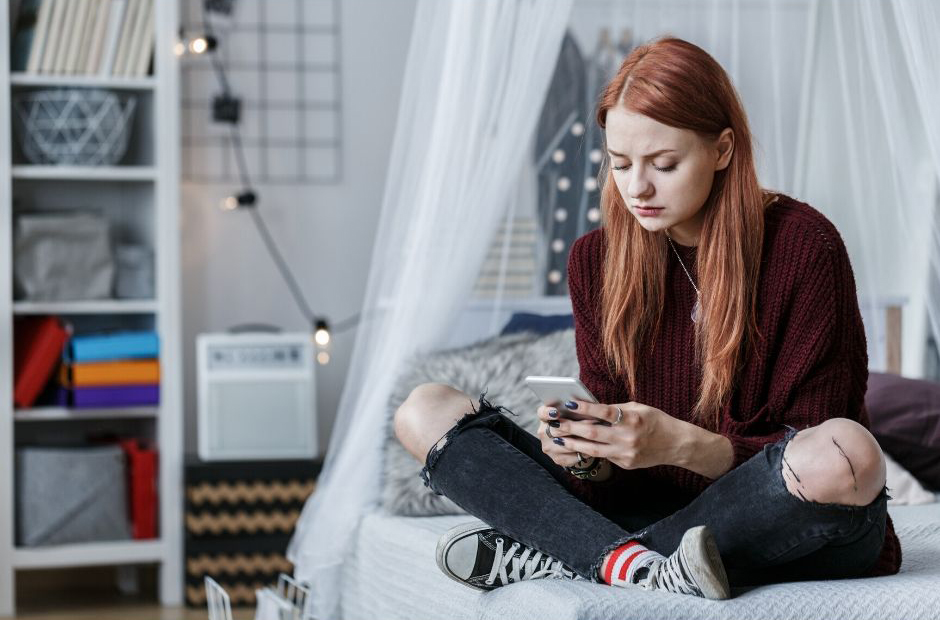In many ways, we are just at the beginning of dealing with the repercussions of COVID-19. It’s hard to predict the long-term effects of the pandemic on our children and teens. They have been home for months, missed almost half their school year, are isolated from their friends and social circles, fear for their health and are experiencing much the same uncertainty and anxiety as the adults in their lives. Kids and parents need ways to protect child mental health during COVID-19.
We do know that with schools being closed, one of the most important safeguards for a young person’s wellbeing is not there. Teachers are often the first people to notice deteriorating mental health among their students and to encourage them to seek treatment, and many schools provide counseling and psychotherapy on site. About 13 percent of adolescents receive mental healthcare through their schools.
It’s also important to note that for many children, school is a refuge from a dysfunctional or unsafe home life. So, in addition to the trauma of COVID-19, they are now exposed full-time to a volatile or abusive situation that is hidden by the pandemic.
Some kids may come out of the other end of COVID with increased resilience. Others may experience long-term trauma. In any case, we have to be aware, vigilant and prepared to provide the healing and care that our children will need.
In the meantime, we can support our kids now to alleviate some of the emotional toll and help them cope with the stress, loneliness and fear they may be feeling.
Tips to protect child mental health
Parents and caregivers can start by having age-appropriate open and honest conversations with their children about the emotions the whole family is feeling as a result of the pandemic. The temptation may be to put on a brave face for children – especially younger ones – but kids are perceptive and ignoring the underlying tensions may add to their anxiety.
- Maintain familiar routines as much as possible, or create new ones, especially if you must stay at home.
- Help children find positive ways to express feelings such as fear and sadness. Sometimes engaging in a creative activity, such as playing or drawing, can help you with this process.
- Engage them in learning activities, but also make sure they have time to play.
- Help children stay in contact with friends and family members by phone or online.
- Make sure that your children have time away from screens every day and spend time doing off-line activities together. Do something creative: draw a picture, write a poem, build something. Bake a cake. Sing or dance, or play in your garden, if you have one.
- Try and ensure that your children do not spend significantly more time than usual on video games.
- Make sure they eat well and exercise.
ADDITIONAL RESOURCES
Kids
- CDC Tips for talking with children about Coronavirus
- Child Mind Tips for talking with kids about the Coronavirus
- Kidpower: Helping Children Regain Their Emotional Safety After a Tragedy
- Children’s Storybook: Something Strange Happened in My City (PDF)
- The World Health Organization has provided some helpful, basic parenting tips for the pandemic.
Teens
- How Teenagers Can Protect Their Mental Health During COVID-19 (UNICEF)
- Quaranteenagers: Strategies for Parenting in Close Quarters
- Helping Families Cope With COVID-19 (National Child Traumatic Stress Network)
- PsyberGuide: Tools for Mental Health Support
Crisis Hotlines
- National Parent Helpline 1-855-427-2736 Operated by Parents Anonymous.
- National Domestic Violence Hotline 1-800-799-SAFE (7233) or TTY 1-800-787-3224 Email and live chat are also available.
If your family is struggling to cope at this time or you have an adolescent or teen who is feeling overwhelmed, I am here to help you protect your child’s mental health. Contact me to learn more about the therapy services I provide, including both in-person and teletherapy counseling sessions.

